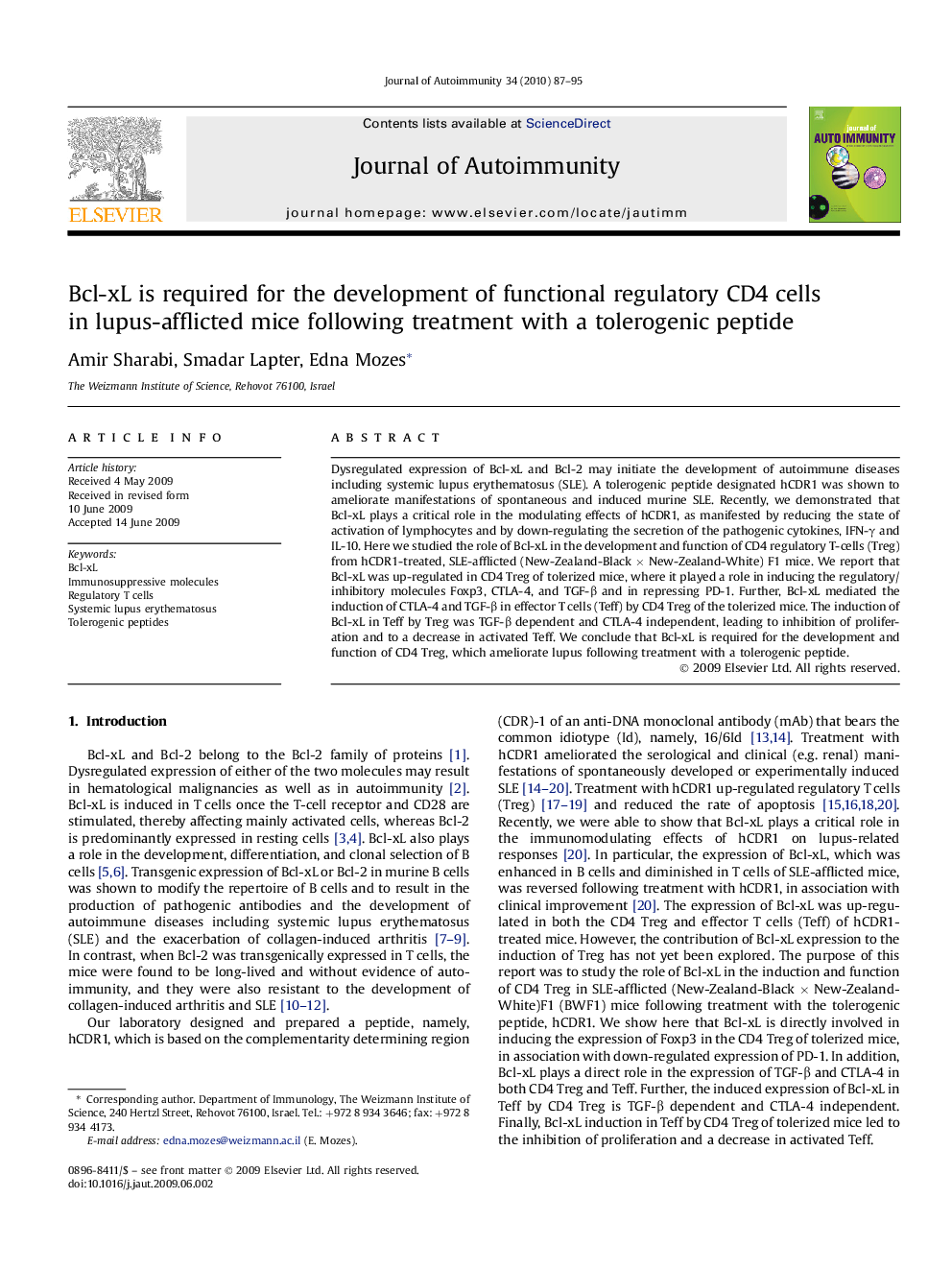| Article ID | Journal | Published Year | Pages | File Type |
|---|---|---|---|---|
| 3368152 | Journal of Autoimmunity | 2010 | 9 Pages |
Dysregulated expression of Bcl-xL and Bcl-2 may initiate the development of autoimmune diseases including systemic lupus erythematosus (SLE). A tolerogenic peptide designated hCDR1 was shown to ameliorate manifestations of spontaneous and induced murine SLE. Recently, we demonstrated that Bcl-xL plays a critical role in the modulating effects of hCDR1, as manifested by reducing the state of activation of lymphocytes and by down-regulating the secretion of the pathogenic cytokines, IFN-γ and IL-10. Here we studied the role of Bcl-xL in the development and function of CD4 regulatory T-cells (Treg) from hCDR1-treated, SLE-afflicted (New-Zealand-Black × New-Zealand-White) F1 mice. We report that Bcl-xL was up-regulated in CD4 Treg of tolerized mice, where it played a role in inducing the regulatory/inhibitory molecules Foxp3, CTLA-4, and TGF-β and in repressing PD-1. Further, Bcl-xL mediated the induction of CTLA-4 and TGF-β in effector T cells (Teff) by CD4 Treg of the tolerized mice. The induction of Bcl-xL in Teff by Treg was TGF-β dependent and CTLA-4 independent, leading to inhibition of proliferation and to a decrease in activated Teff. We conclude that Bcl-xL is required for the development and function of CD4 Treg, which ameliorate lupus following treatment with a tolerogenic peptide.
